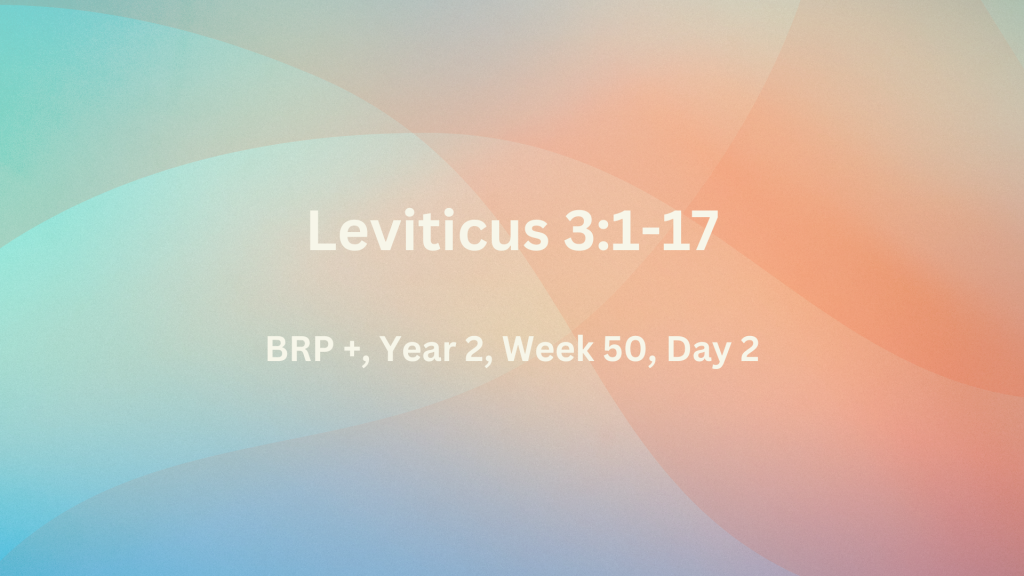Leviticus 3:1-17
Q.1. Why would a person make a peace offering? What kind of animal could be sacrificed? Who slew the animal? What part of the animal was offered? – (Lev.3:1-4, 6-8, 12-15)
Paul wrote to the Colossians that peace was made by Christ -through the blood of His cross (Col.1:20 c.f. Col.1:13-20). However, this experience of peace can be forfeited through sin and broken fellowship. We are then required to confess our sins in order to restore fellowship with God (1 Jn.1:5-2:2). This was foreshadowed in the peace offerings, where an Israelite could make a blood sacrifice that restored fellowship. Regardless of a person’s wealth, an animal could be offered from his cattle, sheep, or goats. However, whether it was a male or female – he shall offer it without defect before the Lord (Lev.3:1 & 6). The priests were responsible to – sprinkle the blood around the altar (Lev.3:2, 8, 13). However, it was the offeror who slew, skinned, and cut up the animal after laying his hand on the sacrificial animal (Lev.3:2, 8, 13). The bringing of a perfect live animal and then the seeing its life drain away with each drop of blood, drove home the awful seriousness of sin. God ordered that the fat, kidneys, and liver be burnt up on the altar (Lev.3:3-5, 9-11, 14-16). God in His grace protected the people from eating the least healthy parts of the animal.
Q.2. What was the priest’s role? How long did the Statute apply? Why were Israelites not to eat the fat or blood? How did God respond? – (Lev.3:5-17)
The priest was there to ensure all was done in accordance with God’s directions so that the sacrifice brought peace to the offeror and proved to be a soothing aroma to the Lord (Lev.3:5 & 16). The peace offering was to be –a perpetual statute throughout your generations in all your dwellings … (Lev.3:17). It has now been superseded by the new covenant, signed, and sealed in the blood of Christ. The Lord specifically forbad Israel from eating any fat or any blood (Lev.3:17). From the beginning, God established the sacredness of the blood – Only you shall not eat flesh with its life, that is, its blood. Surely, I will require your lifeblood … Whoever sheds man’s blood, by man his blood shall be shed, for in the image of God He made man – (Gen.9:4-6). This is highlighted later – For the life of the flesh is in the blood, and I have given it to you on the altar to make atonement for your souls; for it is the blood by reason of its life that makes atonement (Lev.17:11). Blood needed always to be treated with reverence because it foreshadowed the shedding of the precious lifeblood of God’s One and Only Son (c.f. 1 Pet.1:18-21). A sacrifice made in accordance with God’s directions to Moses pleased God, brought peace, and renewed fellowship between a holy God and the penitent sinners (c.f. Lev.1:1; 27:34).

